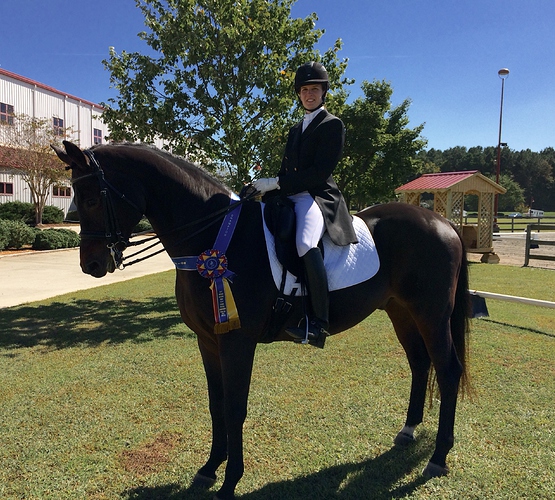Obviously if you live in FL it would have a huge effect, Toronto maybe none at all? Just wondering if it’s like a bunch (is the horse even saleable) or not at all, since as far as I can tell there’s no real treatment that works across the board and it definitely effects the ability to show in summer etc.
Canada isn’t one big uniform blanket of snow 24/7. It’s a whole country with lots of climates. It gets hot in the summer in Toronto.
I would think this is a bit like cribbing or sarcoids or shivers. A lot of people want nothing to do with it, regardless of price. Other people would compromise for the right horse and for them it wouldn’t change the price. It would just significantly limit your pool of buyers, probably more so than with stable vices.
A horse with anhydrosis is unable to perform athletically in any environment so yes it would make them worth nothing as a performance horse.
I’ve seen horses with it do fine when managed. I guess it depends on degree. I can think of one that did second level dressage and got his owner a silver medal, for example.
I lived even further north than Toronto for many year, I know that but the number of days in the 90s is well reduced and when I lived there I just didn’t ride my horse in 90+ degrees cuz we weren’t used to it and wait a couple days and it would be back to a more manageable temp.
However, live somewhere where 90+ deg and 80+ humidity is common the horse would be basically useless much of the year.
2nd level would not apply to a silver medal, it isn’t even the highest level required to get a bronze.
Sorry in our local affiliate bronze is training level, silver is first etc.
That makes sense - sorry for assuming your comment was USDF-centric!
I should have said! I’m not really a dressage person myself.
I think the sale price is that of a potentially useful horse but limited in soundness with no guarantees.
thus under 10,000 in my book
even in winter in Washington state, my horse was an athlete and did sweat during training sessions. Year round management is a factor.and it does become a limiting factor
I had a horse here with anhydrosis who would overheat in temps in the 70’s if it was sunny. I would not only not buy a horse with anhydrosis, I wouldn’t take one if it were free.
They can be managed, but it is not easy.
I would not buy a horse knowing it had anhidrosis. I would not take one for free. I have one who who went through a spell of it. Although he does lightly sweat now, he is extra work even as a pasture ornament once the heat and humidity kicks in.
I would not take one for free, personally.
That’s a little harsh… there are different degrees of anhydrosis and management does work for some.
This is my horse who got me my USDF bronze, silver, and gold medals, the year we won regionals at GP. I’ve had him since he was 4 and in his early teens he stopped sweating sufficiently. I would show him in April/May to qualify for finals, which were Oct/Nov. In the summer I’d ride before work when it was coolest (though often very humid here in the mid-Atlantic) and then let him hang out in front of a fan during the day. He turns 27 today and is doing great in retirement.
I’m glad no one told him he was unable to perform!
I also know an eventer going Training Level with proper management to keep him sweating. I’m sure there are many more out there. Now if management doesn’t help and the horse literally doesn’t sweat at all, then yeah that’s a tough sell.
I know a junior hunter with anhidrosis. He sold last year for $150,000.
do they just not show in summer, or don’t have it too bad so it’s manageable?
He shows all year and is meticulously managed.
Maybe I’ve just been lucky but I knew 2 horses and both responded very well to treatment and although they needed careful management they were also as competitive as any other horse at their level. One was in NJ where it’s plenty humid and hot in the winter. One was in GA where it’s even more humid and hot. The one in GA did start sweating again, eventually. It’s a weird condition.
yes very strange, some start in the mid teens and then suddenly they start sweating again, some never get better. So weird. It definitely depends on the severity of the case. Can they sweat at all vs zero sweating (less likely).
My junior hunter developed anhidrosis and it did not effect his sale price when we sold him (early 2000s for time frame, I am far past my junior years.) His was manageable in that he could lightly sweat, and he was hosed and sponged throughout rides as needed. I personally would not buy one with it now. I would potentially lease if the horse was doing the job I wanted to do.

